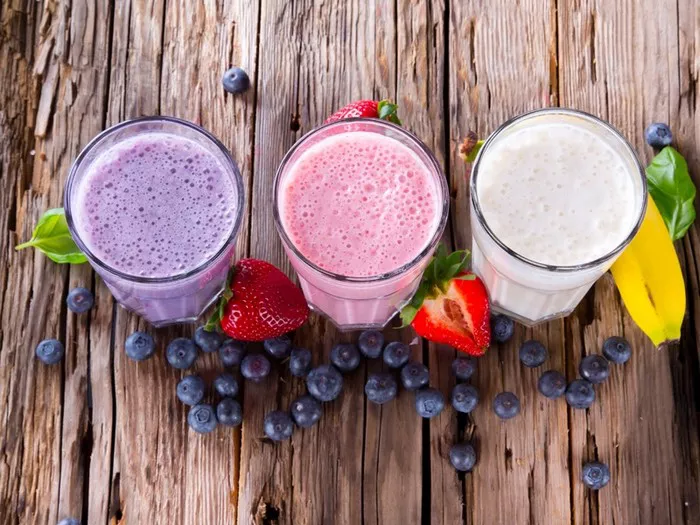Vitamins are essential micronutrients that play a crucial role in maintaining optimal health and supporting bodily functions. They are generally classified into two categories: water-soluble and fat-soluble vitamins. While the former can be excreted by the kidneys and require regular replenishment, the latter are stored in the body’s fat tissues and liver. This fundamental difference influences how and when each type of vitamin should be consumed, particularly in terms of their absorption and efficacy when taken with or without food.
Why Some Vitamins Should Be Taken with Food
Taking certain vitamins with food enhances their absorption and utilization by the body. Specifically, fat-soluble vitamins (A, D, E, and K) require the presence of dietary fat to be absorbed effectively. Moreover, taking vitamins with meals can also help reduce stomach upset that some people experience when supplements are taken on an empty stomach.
Fat-Soluble Vitamins: A Closer Look
Vitamin A: Essential for Vision and Immune Function
Why It Should Be Taken with Food: Vitamin A is a fat-soluble vitamin that is best absorbed when taken with a meal that contains fat. This vitamin is critical for maintaining healthy vision, skin, and immune functions.
Sources and Recommendations: Foods rich in Vitamin A include carrots, sweet potatoes, and dark leafy greens. Supplements should be taken with meals to ensure optimal absorption.
Vitamin D: The Sunshine Vitamin
Why It Should Be Taken with Food: Vitamin D is unique among vitamins because it can be synthesized by the body through sun exposure. However, dietary sources or supplements are still necessary for many individuals, particularly those in northern latitudes or with limited sun exposure. Like other fat-soluble vitamins, Vitamin D’s absorption is significantly enhanced when taken with dietary fats.
Sources and Recommendations: Fatty fish, fortified dairy products, and egg yolks are good natural sources. For those taking Vitamin D supplements, especially higher doses, consuming them with a meal containing fats can increase absorption by about 50%.
Vitamin E: An Antioxidant Powerhouse
Why It Should Be Taken with Food: Vitamin E is a potent antioxidant that protects cells from oxidative stress. Due to its fat-soluble nature, it requires fats for proper absorption.
Sources and Recommendations: Vitamin E is prevalent in nuts, seeds, and vegetable oils. Supplements, particularly those at high doses, should be consumed with a fat-containing meal to enhance absorption.
Vitamin K: Crucial for Blood Clotting and Bone Health
Why It Should Be Taken with Food: Vitamin K is essential for blood clotting and maintaining bone health. Absorption is maximized when the vitamin is taken with a meal that includes fats.
Sources and Recommendations: Leafy green vegetables are excellent sources of Vitamin K. Those who supplement with Vitamin K should do so during a meal that includes fats for best results.
Water-Soluble Vitamins: General Guidelines
While water-soluble vitamins (the B-complex vitamins and Vitamin C) are typically absorbed well regardless of food intake, there are specific benefits to consuming them with meals.
B Vitamins: Metabolic Boosters
General Information and Benefits of Taking with Food: The B vitamins are a group of nutrients that play a critical role in energy production and red blood cell formation. Taking B vitamins with food can enhance their absorption and effectiveness, particularly since some of them can cause stomach upset if taken on an empty stomach.
Special Considerations for B12: Vitamin B12 is best absorbed when stomach acid levels are adequate, which is usually during meals.
Vitamin C: Essential for Immune Health and Skin
Why It Should Be Taken with Food: Vitamin C is known for its role in supporting the immune system and synthesizing collagen, which is vital for skin health. Although it is water-soluble and does not require fats for absorption, taking Vitamin C with food can minimize the risk of stomach upset and enhance its uptake.
Optimizing Vitamin Intake: Practical Tips and Considerations
To maximize the benefits of your vitamin regimen, consider the following tips:
Meal Planning for Vitamin Efficiency: Incorporate a balanced diet that includes a mix of fat, protein, and carbohydrates to facilitate the absorption of both fat-soluble and water-soluble vitamins.
Understand the Timing: For fat-soluble vitamins, aim to take them with meals that contain healthy fats. Water-soluble vitamins can be taken with any meal but may be beneficial if taken earlier in the day as they can provide energy and support daytime metabolic processes.
Consultation with Healthcare Providers: Always discuss your vitamin and supplement regimen with a healthcare provider, particularly if you are managing specific health conditions or are on medication. Certain vitamins can interact with medications, and your doctor can provide guidance tailored to your health needs.
Conclusion: The Strategic Consumption of Vitamins
Taking vitamins with food is not just a matter of improving absorption but also enhancing their overall effectiveness and minimizing potential side effects. By understanding which vitamins should be taken with food and adjusting your intake accordingly, you can significantly improve the beneficial impacts of your dietary supplements. This strategic approach ensures that you derive the maximum health benefits from your supplements, contributing to better health outcomes and overall well-being.
[inline_related_posts title=”You Might Be Interested In” title_align=”left” style=”list” number=”6″ align=”none” ids=”7789,7786,7704″ by=”categories” orderby=”rand” order=”DESC” hide_thumb=”no” thumb_right=”no” views=”no” date=”yes” grid_columns=”2″ post_type=”” tax=””]
































